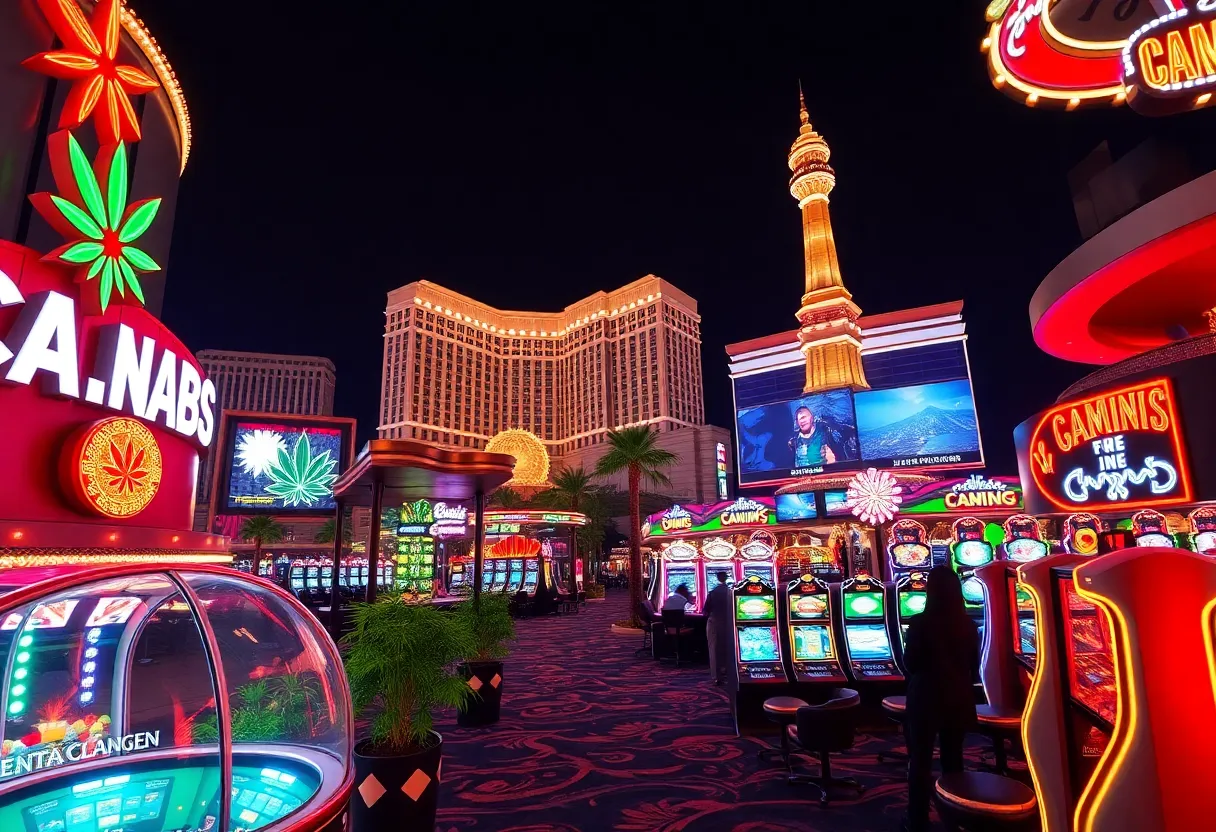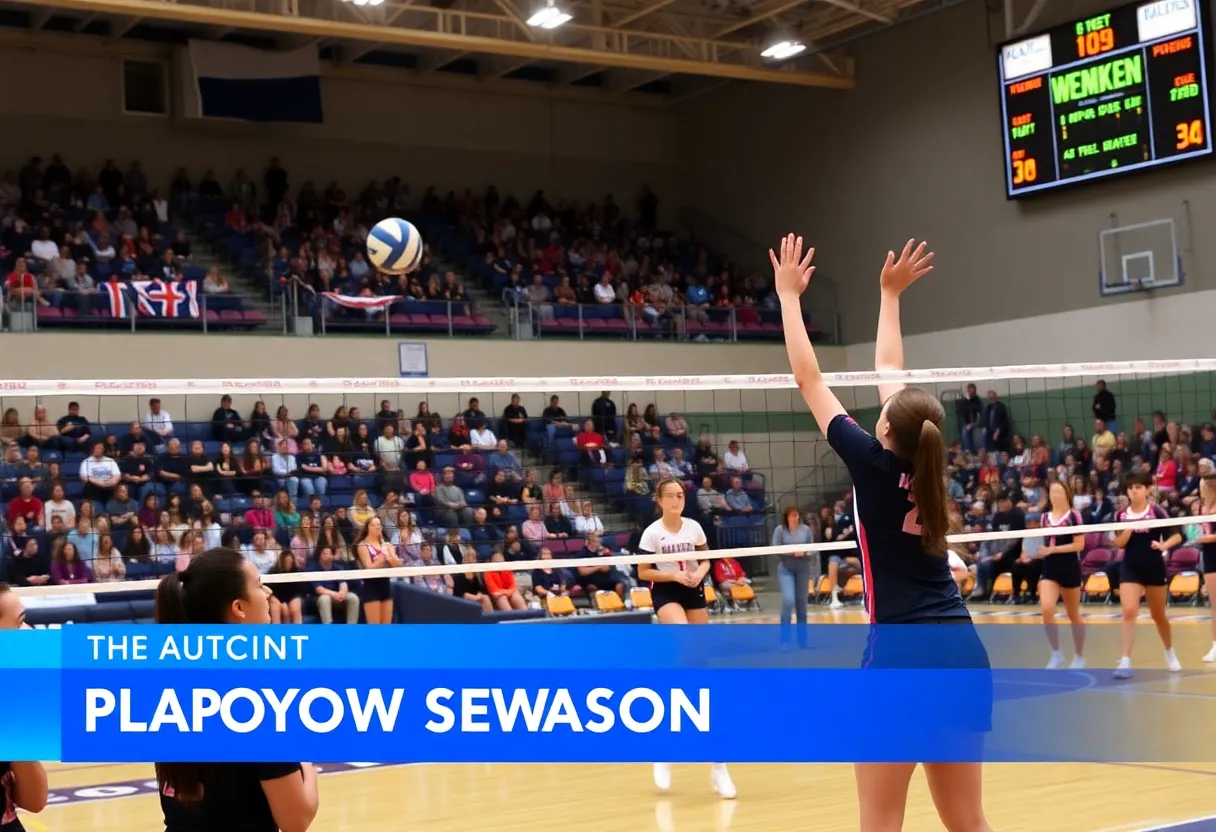News Summary
Seth Schorr, CEO of Fifth Street Gaming, discussed the potential for integrating the cannabis industry within Nevada’s gaming sector during a panel at UNLV. With a significant decline in tourism and projected drops in revenue, he advocates for collaborative approaches between cannabis and gaming sectors. Current regulations pose challenges, but legislative efforts like Assembly Bill 203 aim to explore partnerships. Panelists believe easing restrictions could catalyze economic recovery and enhance Las Vegas as a unique tourist destination.
Las Vegas – In a recent panel discussion at the University of Nevada Las Vegas (UNLV), Seth Schorr, the CEO of Fifth Street Gaming, announced a compelling case for the integration of the cannabis industry within Nevada’s gaming sector. This discussion, held on May 19, 2025, comes at a time when Las Vegas is grappling with a significant decline in tourism, highlighting the need for innovative solutions to drive economic recovery in the area.
Schorr pointed out that Las Vegas experienced nearly 300,000 fewer visitors in March 2025 compared to the same month the previous year. As the state faces a projected $191 million reduction in expected revenue receipts, positioning the cannabis sector as a viable avenue to attract visitors has become essential. The anticipated decline in room tax revenue will further exacerbate an already challenging budget scenario for the Nevada Legislature.
Schorr’s remarks resonate within a broader context of growing competition within the gaming industry, especially as other states begin to permit online gambling and other forms of gaming. Although recreational marijuana is legal in Nevada, strict regulatory separations exist between the cannabis and gaming industries due to federal policies that impose limitations on their overlap.
Challenges of the Current Regulatory Landscape
Current regulations prohibit tourists from receiving legal cannabis deliveries at properties along the Resort Corridor, which restricts potential cannabis-related business opportunities. David Goldwater, owner of Inyo Cannabis Dispensary, discussed efforts to amend existing legislation to allow for deliveries to residents while ensuring compliance with state regulations. However, state regulators have expressed concerns about overly broad amendments that might complicate enforcement and regulation.
The ongoing dialogue at the UNLV panel included various stakeholders, such as representatives from both the gaming and cannabis industries and state regulators focused on addressing these issues. Terry Johnson, a former member of the Nevada Gaming Control Board, recognized the necessity of exploring collaborative prospects between tourism and cannabis sectors.
Legislative Efforts Toward Integration
Assembly Bill 203 is currently in consideration, which aims to investigate possible investment and operational partnerships between gaming entities and the cannabis industry. While the bill has yet to pass, it is a crucial step towards initiating discussions on potential policy changes at the federal level regarding cannabis. At present, state laws require a significant distance—a 1,500-foot separation—between cannabis businesses and casinos, further complicating the integration process.
Schorr emphasized that allowing innovative operators to explore cannabis tourism options could significantly enhance Las Vegas’s economic recovery. Research indicates that for some demographics, the use of marijuana on a daily basis may exceed that of alcohol, suggesting a potential market for cannabis lounges integrated within resort properties.
Future Prospects and Industry Dynamics
The panelists acknowledged that the outdated separation between Nevada’s gaming and cannabis sectors is increasingly untenable, especially in light of changing market dynamics and consumer preferences. Historically, fears of federal repercussions have hindered the relationship between these industries, yet the state continues to assess the implications of possible changes to federal cannabis policies.
Schorr advocates for strategic planning to capitalize on emerging opportunities, proposing that casinos could collaborate with cannabis operators to design unique consumer experiences. By easing restrictions on cannabis delivery methods, as suggested by Goldwater, the state could reduce illegal sales and improve the profitability of legal market participants. The conclusion drawn from the panel emphasizes that thoughtful integration of cannabis tourism is essential for Nevada as more states begin exploring similar paths.
Deeper Dive: News & Info About This Topic
HERE Resources
Las Vegas Tourism Faces Significant Challenges
Las Vegas Explores Cannabis and Gaming Collaboration
Additional Resources
- Las Vegas Sun: Proposed Cannabis Reform Could Open Las Vegas Resorts to Cannabis
- Wikipedia: Cannabis in Nevada
- CDC Gaming Reports: Gaming Executive Touts Need for Cannabis Partnerships at Casinos
- Google Search: Cannabis and Gaming in Nevada
- The Nevada Independent: A Decade After Marijuana Legalization, Is it Time for Nevada Casinos to Revisit Hands-Off Policy?
- Google Scholar: Nevada casinos cannabis
- FOX5 Vegas: Can Gaming and Cannabis Co-Exist? Nevada Policy Experts Explore Options
- Encyclopedia Britannica: Marijuana Legalization in Nevada
- Las Vegas Review-Journal: Are Casinos Losing Revenue by Not Allowing Cannabis Consumption?
- Google News: Cannabis and Casinos Nevada

Author: STAFF HERE LAS VEGAS WRITER
The LAS VEGAS STAFF WRITER represents the experienced team at HERELasVegas.com, your go-to source for actionable local news and information in Las Vegas, Clark County, and beyond. Specializing in "news you can use," we cover essential topics like product reviews for personal and business needs, local business directories, politics, real estate trends, neighborhood insights, and state news affecting the area—with deep expertise drawn from years of dedicated reporting and strong community input, including local press releases and business updates. We deliver top reporting on high-value events such as Electric Daisy Carnival, World Series of Poker, and Consumer Electronics Show. Our coverage extends to key organizations like the Las Vegas Chamber of Commerce and Three Square Food Bank, plus leading businesses in hospitality and entertainment that power the local economy such as MGM Resorts International, Caesars Entertainment, and Las Vegas Sands. As part of the broader HERE network, we provide comprehensive, credible insights into Nevada's dynamic landscape.



